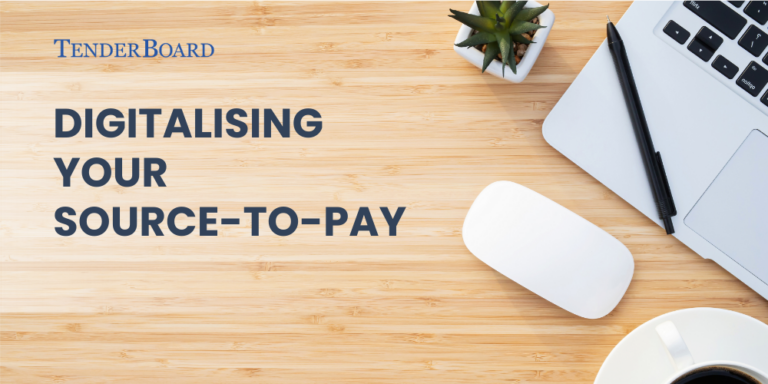What is Indirect Supplier Management and Why it Matters?
Vendors and suppliers play a huge role in maintaining a smooth supply chain. It’s important for both the supplier and organisation to engage properly and effectively in order to manage relationships properly.
This is done via the process also known as supplier management. There are two broad categories of supplier management processes – direct and indirect supplier management.
The reason why we split supplier management into two distinct categories is due to the way we spend in procurement – direct and indirect spend. To gain a deeper understanding of supplier management, one cannot examine this topic in silos.
In this article, we will discuss:
- What is direct and indirect spend
- What indirect management is
- What is the difference between direct and indirect supplier management
- What the benefits of indirect supplier management are
- How e-procurement systems can help
What is direct and indirect spend?
Direct spend consists of the expenses that can be traced directly to a specific cost. For example, the cost of materials needed to make a product. But apart from raw materials, you need a lot of other things to manufacture a product.
For instance. you need a whole network of teams of people to support your effort. Some of them include marketing, HR, and IT. And to support these teams, there are other expenses involved. Some of these include office supplies, welfare costs, and cafeteria supplies. These are your indirect spend, otherwise known as indirect costs.
And as you can tell. another key difference is the fact that direct spend has a more direct impact on revenue than indirect spend.
What is supplier management?
Supplier management is the process in which a business systematically assesses supplier contribution and influence on success, identifies tactics to optimize their performance, and develops a strategic approach to implement them.
It involves all the business processes and activities that deal with the entire lifecycle of a supplier for an organization.
What are the differences between direct and indirect supplier management?
1) What is indirect supplier management?
As mentioned, suppliers can be either direct or indirect. And this depends on how you use them and how you categorise your spend and manage your budget. You will need a lot of input from your finance teams to clearly differentiate.
In general, indirect supplier management is lower down the hierarchy as compared to direct supplier management. This is due to the fact that indirect spend has a lower impact on your business’s bottom line. Thus, they tend to get less attention from procurement.
While valid, it’s better to assigned equal importance to both your direct and indirect suppliers. This is because improving your indirect supplier management process is beneficial to your cost efficiencies and indirectly affects your business’s profitability. We will discuss its benefits in a later section.
2) What is direct supplier management?
Direct supplier management, on the other hand, is the management of relationships with vendors who play a direct role in the production of your goods.
Some of them include those who sell you the parts and materials needed to build your product. Because they play a more direct role in a company’s bottom line, businesses tend to emphasise direct supplier relationship management more.
Some methods include proactively keeping in touch with suppliers and forming long term business partnerships.
Benefits of indirect supplier management
While direct supplier relationship management is necessary, we must not overlook the importance of the indirect version.
Efficient management of indirect suppliers helps you locate the most reliable ones. This in turn means that you spend less time managing orders, deliveries, and invoice issues.
Maintaining good relationships with suppliers also helps you to reduce the time and effort needed to manage indirect suppliers through good relationships impacts timeliness and trustworthiness.
There is also a reduced risk in conducting business. An updated supplier information management record significantly reduces the chance of fraud between staff and suppliers.
Ignoring your indirect supplier spend and indirect supplier management can cause inefficient procurement. You end up wasting time and money and this eventually leads to reduced overall profits.
How e-procurement systems can help with indirect supplier management?
Without clearly recording and cataloguing every single one of your indirect purchases, it can be tricky to reduce spending when the need arises. When there is no proper tracking process, it results in less accountability around indirect spend.
One of the best methods to keep track of indirect spend is to use an e-procurement system. Using the right software in place can help you effectively manage indirect spend.
A good e-procurement software should have these key features:
- Allows you to submit a purchase requisition and track the approval processes based on the organisation’s SOP
- Has multiple ways to source for suppliers to minimise the administrative costs
- Handles the evaluation and awarding of contracts to suppliers online with a single pane of view
- Ability to configure workflows to improve control of requesters, approvers, procurement and finance teams to enhance efficiency
- Seamlessly generate purchase orders, goods receipts and invoices, enabling three way matching for finance and procurement teams
- Keeps track of processes with audit logs for corporate governance
What’s next?
While direct supplier management is definitely important, businesses should never neglect indirect supplier management. As we’ve discussed, its lack of a direct impact to a company’s bottom line does not mean that there is no impact.
Organisations should pay as much attention to indirect suppliers as possible, and use e-procurement systems to help them.
To find out more about how Tenderboard can help your business manage your relationships with your indirect suppliers, click here to contact us today.













